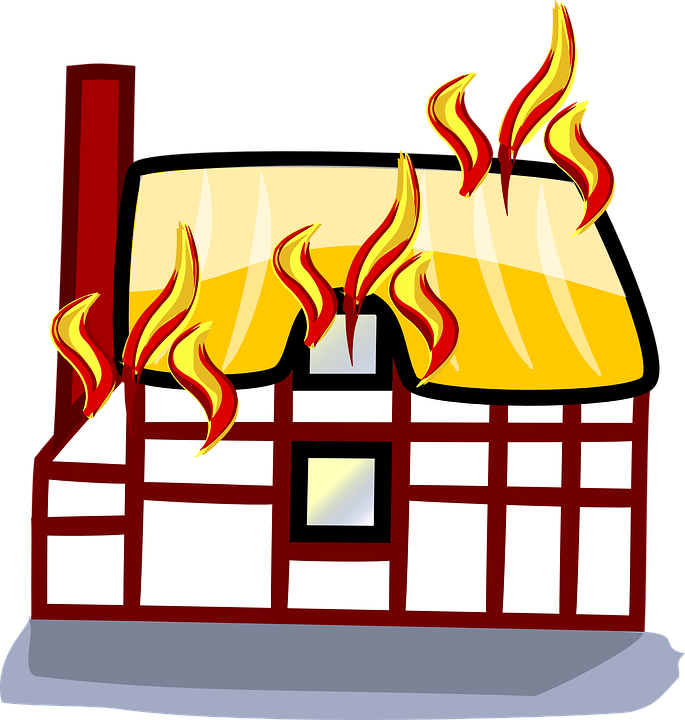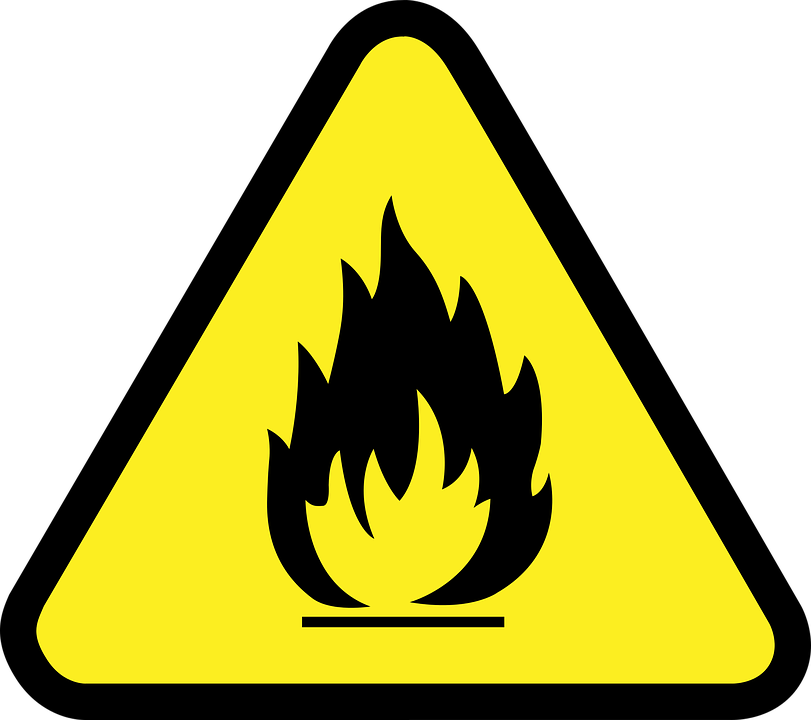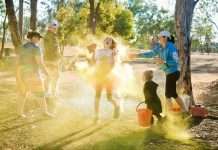 We all remember “Stop, Drop and Roll” from our elementary school years, but how much do we actually know about basic fire safety in our homes?
We all remember “Stop, Drop and Roll” from our elementary school years, but how much do we actually know about basic fire safety in our homes?
As someone who started a fire in my own kitchen recently, I learned pretty quickly that I didn’t recall a lot. And the little I did know went right out the window in the panic of an ACTUAL FIRE IN MY KITCHEN. I remember running around thinking, Where is the fire extinguisher again???
So let’s start with the ugly stats:
-Roughly 7 people die every day in the United States from home fires, and about 13,000 are injured every year.
-60% of home fires occur in homes that do not have a smoke alarm.
-Kids under 5 have a much higher risk of dying in a home fire than kids from older age groups, simply because they just can’t comprehend the risk or what to do in the moment.
-Cooking is the leading cause of home fires (I learned this one the hard way! Thanks for nothing, bacon grease!)
-Having a smoke alarm in your house cuts your risk of dying from a fire in half.
Here are 7 must-haves for a fire-safe home:
Smoke alarms/ smoke detectors.
- Install at least one smoke alarm on every floor of the home, even the basement, as well as a smoke alarm outside every sleeping area in the home.
- Check the batteries twice a year
- Replace alarms every 10 years
- Looking for a fancier version? Check out these hardwired alarms that can sync to other alarms, have a voice prompt announcing to children there is a fire, and even have location features.
Carbon Monoxide detectors
These detect the silent but deadly, non-odorous gas CO. You should have at least one in every home, and also check that it’s working twice a year.
 Fire Extinguisher
Fire Extinguisher
Experts recommend having one in the kitchen, garage, and workshop if you have one. Look for one that is designed for home use and rated for multiple types of typical home fires. And always remember PASS:
Pull the pin. Release the lock with the nozzle pointing away from you.
Aim low. Point the extinguisher at the base of the fire.
Squeeze the lever slowly and evenly.
Sweep the nozzle from side to side.
Safety Ladder
These will allow for easier escape from 2nd or 3rd story rooms. Some experts recommending keeping one in every bedroom located above ground level.
Fire-Resistant Lock Box or Safe
This is a great place to keep irreplaceable items such as birth certificates, passports, insurance papers, etc.
Check the windows
Make sure that windows in every room are easy to open and not painted or nailed shut. This may be your only exit in a fire.
Close Your Doors
Based on over 10 years of UL Firefighter Safety Institute research, closing your bedroom door(s) will help slow the speed of a fire and potentially save lives. Take the pledge here!
Ways to reduce and eliminate hazards in your home:
-Make sure your electrical appliances, cords, and outlets are in good condition.
-Avoid overloading outlets with multiple plugins.
-Replace faulty electrical outlets.
-Use the correct wattage bulbs for light fixtures.
-Don’t run electrical wires under rugs.
-Don’t let lamps or night-lights touch bedspreads, drapes or other fabrics.
-Never place a space heater too close to a bed. They should be at least 3 feet from anything flammable.
-Keep newspapers, magazines, and clothing/fabrics away from space heaters, radiators or fireplaces.
-Always supervise kids in the kitchen.
-Don’t leave food unsupervised on the stove, microwave or oven, and never leave a dish towel too close to the burner (or on the burner as I have done in the past).
-Check the fireplace and have it cleaned yearly.
-Keep matches and lighters away from children.
-If you smoke, make sure the cigarette butts are completely out before tossing them out.
-Keep your garage clean. Even a thin layer of sawdust can be set on fire if located near a heating appliance.
-Use proper heat sources and have them maintained regularly. Never use an oven to heat a home.
-Eliminate clutter.
Ways to Prepare:
-Prepare and practice a fire escape plan. This includes identifying at least two exits from each room, establishing a Safe Meeting Spot and even drawing out a map. Look here for an example.
 Teach your Kids:
Teach your Kids:
-To run from a fire, not to hide from it.
-To cover their mouths and noses with a moist towel or clothing to keep out dangerous fumes while evacuating
-To crawl under the smoke to safety, and stay as low to the ground as possible (remember smoke always rises).
-To touch any closed door (not the doorknob) to see if it’s hot, and if it is, DO NOT open it. Find another exit (remember closed doors slow the spread of fire).
-To locate the nearest fire exit stairways and to always avoid elevators during a fire, if you live in an apartment building.
-To never stop to grab belongings or even to call 911. That phone call can be made once everyone is safely out of the home.
-To never go back inside a burning building.
-To stop, drop, and roll to extinguish flames on your body.
-How to safely dial 911
One more tip that I often forget:
Never use water to put out a grease fire. If you don’t have immediate access to a fire extinguisher, you can try to suffocate the flame by covering it with a pot lid.
Good luck and be safe!!
Want more fire safety resources? Check these out:
http://www.firefacts.org/parents.htm
http://kidshealth.org/en/parents/fire.html#
https://www.safety.com/kids-fire-safety/#gref
Editor’s note: This post originally published on September 18, 2017 and was lightly edited prior to republishing.


















I like what you said about having a fire extinguisher in your kitchen and garage. My wife and I are planning on buying a house in a few months, and we want to make sure that we take good care of it. We’ll be sure to look into our options for getting some fire extinguishers to help with his in the future.
I didn’t realize that smoke alarms should be replace every 10 years. We recently moved into a home that is over 50 years old, and aren’t sure the age of the smoke alarms. Would it be a good idea to have them replaced, just to be on the safe side?